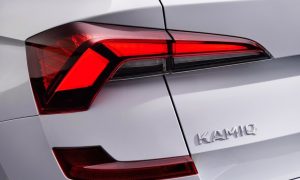In the past, a common topic was the promise of E85 fuel and the resurgence of locally-produced ethanol. Today? Not so much. As matter of fact, there don’t seem to be any real E85 promotional campaigns running anymore. There was a time that General Motors was making considerable noise about it, but they too have gone radio-silent. What’s going on?
First, what is E85?
It’s simple, E85 is a transportation fuel consisting of 85 percent ethanol and 15 percent gasoline. Since ethanol can be made from biomass (starch or sugar-based feedstocks such as corn,) E85 was seen as a way for the American farmer to help reduce America’s dependence on imported petroleum.
E85 versus Gasoline
When equipped with the right engine, E85-capable vehicles can run on conventional gasoline or E85 ethanol-blended fuel with no modification. It’s this flexibility that gives them the nickname “flex-fuel” vehicles. However, E85 is not exactly like gasoline. There are some pros and cons:
E85 Pros – When using E85, your car will pollute less and you’ll also be supporting America’s energy independence. Advocates add that utilizing renewable energy source helps stretch the earth’s supply of petroleum. Plus, the homegrown fuel helps reduce tax dollars and cuts down on the military resources needed to secure our supply of foreign oil.
E85 Cons – Our technical consultant at Selma Chrysler of Selma, CA reminded us to mention that E85 doesn’t get the same gas mileage as pure gasoline. This is because it doesn’t contain as much energy as regular-grade gasoline. Typically, vehicles get 25 to 30 percent less fuel mileage when running on E85 than they do on gasoline. That means E85 should be at least 25-30 percent cheaper than gasoline to break even on cost, and often it’s not. Furthermore, simply finding a place to fill up on E85 ethanol is a challenge because most gas stations don’t carry it.
Another concern is that most ethanol currently produced in this country is made from corn. The problem is that this is also feed for livestock, which tends to put a greater strain on the supply.
Production issues
In 2011, Detroit Three’s top executives lobbied for increased government support of ethanol production. And the companies funded campaigns to promote the use of E85 and the installation of E85 pumps at more gas stations. But E85 has come under increasing scrutiny. Critics derided the millions of dollars in tax subsidies provided to ethanol producers. In response, Congress decided to stop subsidizing ethanol.
Detractors also note that lots of non-renewable diesel and gas is consumed to grow, transport, and process corn that becomes ethanol. Some economists maintain it requires more energy to produce ethanol than ethanol itself provides. This is a major realization.
Conclusion
The issue of flex-fuel vehicles will be debated for years to come. If you’re a supporter of the technology and are interested in buying a flex-fuel vehicle, check out this link to the U.S, DOE’s list of available Flex-fuel vehicles at fueleconomy.gov.
Previous article
Why Buy or Lease a Car When You Can Subscribe


